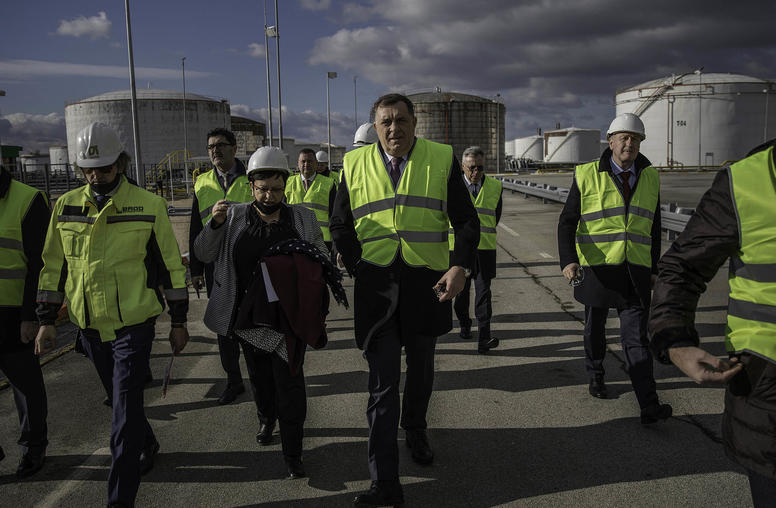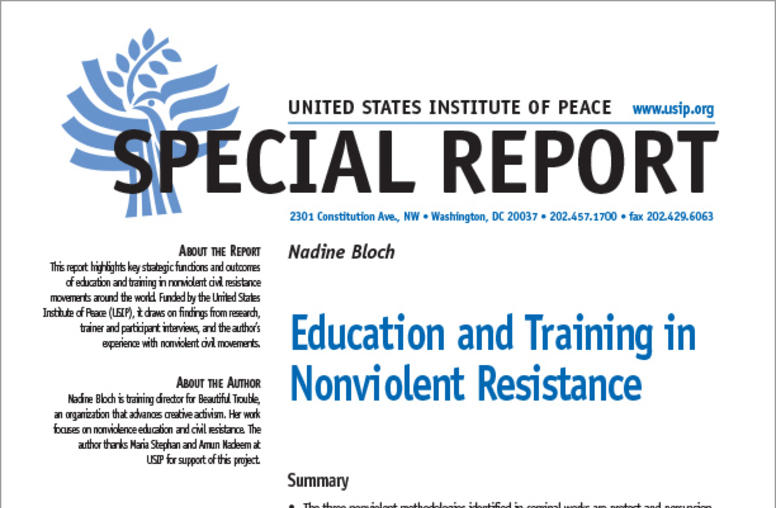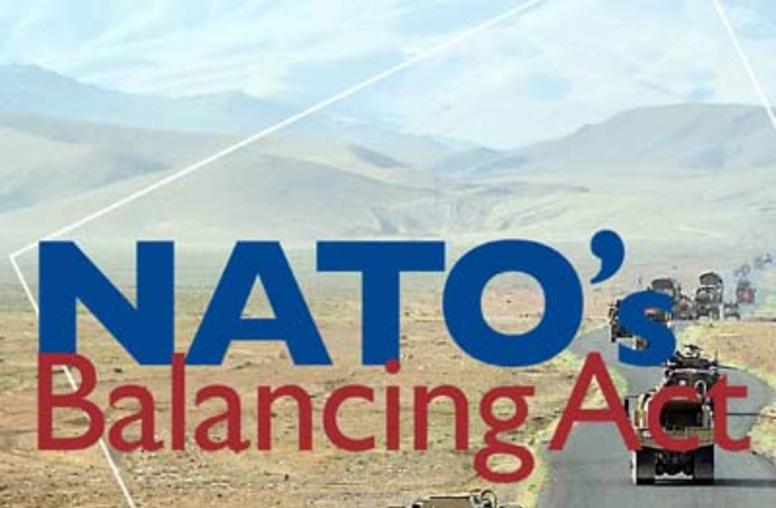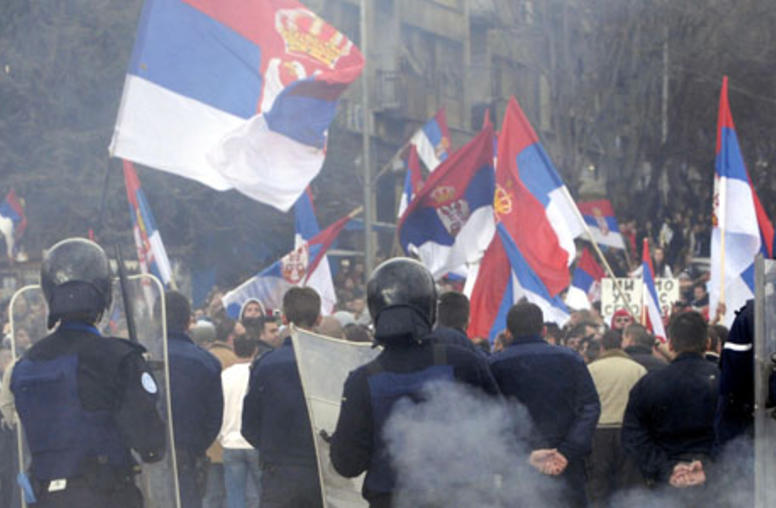Serbia: Current Issues and Future Direction
Daniel Serwer testified before the House International Relations Subcommittee on Europe and Emerging Threats on Serbia's democratic transition and Kosovo's status.
Thank you for this opportunity to offer my personal views at an important moment in Serbia's democratic transition. Within the next year—perhaps even within a few months—Serbia will face two dramatic challenges: elections in which unreformed parties previously allied to Slobodan Milosevic will re-emerge as major—perhaps even majority forces—on the Serbian political scene; and a decision on Kosovo's status. Before discussing these challenges, let me review Serbia's transition process.
Serbia has chosen a slow and difficult transition...
After the fall of Milosevic in October 2000, the newly elected President of Yugoslavia, Vojislav Kostunica, sought to restore order quickly and preserve intact the institutions that had previously been instruments of repression and war: the army, the police, the secret services and the judiciary. Serbian prime minister Zoran Djindjic wanted faster reform, but his assassination in March 2003, apparently by elements of the security forces, and Kostunica's election to the prime ministry a year later ensured that Serbia would change only slowly and without major impact on elements of the previous regime. In fact, the votes of Milosevic's Socialist Party and the Radical Party, whose paramilitaries wrecked havoc in Bosnia and Kosovo during the 1990s, keep Kostunica's government in office.
Even slow change, if it goes in the right direction, will bring good things over time. More than three years into Kostunica's mandate, Serbia has made progress. Kostunica's coalition partner--G17 Plus--has ensured macroeconomic and monetary stability, substantial privatization and progress towards a market economy. A new War Crimes Court has begun to prosecute lower level perpetrators. Lower level police are behaving better towards Serbia's citizens. The Parliament is becoming a serious legislature and has begun to exercise oversight responsibilities. It is no longer possible to imagine that Serbia will trouble its neighbors with military and paramilitary force.
That said, there is still a long way to go. Serbian media--even those that had a reputation for independence in the Milosevic period--are being pressured to conform to government views. The recent religion law is a step backwards. State institutions--especially in the security sector--still depend on personnel who supported the Milosevic regime in its worst crimes. This is why Ratko Mladic has not been arrested or sent to The Hague. It is also why Djindjic's murderers have not been tried and two witnesses have been murdered, with no subsequent arrests. The Radical and Socialist parties that support Kostunica's government are unreformed and unapologetic advocates of Greater Serbia, including the ethnic cleansing and crimes against humanity that they used in the 1990s to ensure all Serbs lived in one country and were not governed by non-Serbs.
People associated with these views have threatened and even physically attacked Serbia's most prominent human rights advocates, including the courageous Natasha Kandic and Sonja Biserko. It is not clear that the Serbian police have done all they could to prevent such attacks. The Congress would be wise to require that suspended US assistance money be spent on grants to Serbian civil society organizations that are willing to campaign in favor of completing Serbia's democratic transition.
...and is showing no flexibility on Kosovo.
While some of these problems should concern the international community in their own right, the need for a decision on Kosovo's status heightens their significance. Serbia is approaching the Kosovo problem with the same objective as Milosevic, but notably without threatening the use of force: Belgrade seeks to maintain sovereignty and territorial integrity. This was made absolutely clear during the recent visits of Prime Minister Kostunica and President Tadic, neither of whom showed flexibility on the sovereignty question. It is also clear from Belgrade's intense effort to ensure that the Russians will veto any Security Council resolution that offers independence to Kosovo.
Belgrade knows, however, that its proposal of "maximum autonomy" for the Kosovo Albanians may not succeed. The Russians will not hold forever. The fallback position is the three Ds: delay, division and distraction. Belgrade would like a long delay--decades if possible--but it will also be pleased with a few months. This will enable Serbia to solidify control over the northern three and a half municipalities in Kosovo as well as several Serbian enclaves and present the international community with de facto partition. Already the reintegration of the north would be a major challenge for the internationals. Delay also increases the likelihood that Albanian extremists will attack Serbs in Kosovo, thus undermining Kosovo's campaign for independence.
The third D is distraction. President Tadic during his recent visit argued that if Kosovo is given independence the Radicals will win Serbia's next parliamentary elections, to be held by late 2007. He therefore seeks delay on Kosovo, promises that after elections Kostunica's party and his own will govern together (cutting out the Radicals), and implies that he and Kostunica will be more flexible than heretofore. This is appealing if you think the Radicals threaten democracy in Serbia and if you believe the promise of greater flexibility in the future.
Belgrade should be allowed to manage its own politics...
I do not believe either of these premises. The Radicals may halt but will not be able to reverse Serbia's democratic progress or bother Serbia's neighbors. They are likely to do well in the next elections, and Tadic and Kostunica will try to form an anti-Radical coalition, whatever happens with Kosovo. But if Tadic and Kostunica come to power together, it is unlikely that they will demonstrate greater flexibility after a political campaign in which they will pledge over and over again that they will not give up an inch of Serbian territory or an iota of Serbian sovereignty. It is moreover likely that a new constitution asserting that Kosovo is an integral part of Serbia will be adopted before the elections, making greater flexibility all but impossible.
The fact is that it would be far easier for the international community to settle the Kosovo question with the Radicals in power. No one could then expect the Kosovo Albanians to remain in a common state with Serbia. Letting the Radicals take the rap for losing Kosovo would be much better for Serbian democracy than pinning that responsibility on more democratic political forces.
The international community does not, however, decide when Serbian elections are called. If Kostunica and Tadic want to force a delay of several months, they can call elections when they want. If they do, in my view the United States would be well advised to allow formation of any government that reflects the will of the Serbian people. Washington's behind-the-scenes efforts to maintain Kostunica in power over the past three years have been counter-productive: they damage Serbian democracy and hurt the prospects for a Kosovo settlement by making the US hostage to internal Serbian politics.
...and the international community should get on with settling Kosovo's status.
While Belgrade has made progress on the path to democracy, it has painted itself into a corner on Kosovo. It offers no realistic way in which two million people who do not accept Belgrade's authority can be represented internationally. Belgrade does not want to do it, and at the same time it does not want the Albanians to represent themselves. No one in Belgrade would pay the price of keeping Kosovo part of Serbia--following the Kurdistan precedent that would mean an Albanian president, foreign minister and deputy prime minister. Nor would any Kosovars occupy those positions.
If Kosovo is to become part of the European Union—as Americans and Europeans agree it should in due course—it will have to negotiate its entry as a sovereign state. By then, I trust Mladic and Karadzic will be serving their sentences and Serbia will have been a member of the EU for a long time. Would Serbia really want to seek EU membership on Kosovo's behalf, or would it want to be exercising a veto over Kosovo's membership? Already today, a significant percentage of Serbian citizens accept independence as a realistic, even if not desirable, option for Kosovo. Kosovo is not on the list of top concerns for most Serbs, who are far more worried about their livelihoods, their pensions and their hopes for a European future.
This does not prevent Serbia from viewing Kosovo through its own prism, which sees its "loss" as one in a long string of humiliations. Across the political spectrum in Serbia, there are complaints about double standards: if borders are sacrosanct, why are you willing to change Serbia's borders? Why can't Republika Srpska be independent? Why are criminals who committed crimes against Serbs let off easy at The Hague, or not charged at all? Serbs are convinced that the international community is against them, even though they have gotten a far better deal from the US and the EU than anyone might have imagined possible in Milosevic's time, including the Status of Forces Agreement signed a few weeks ago. Serbs will resent the loss of Kosovo, but it is not a vital national interest and they will get over it, as they have quickly gotten over the loss of Montenegro.
I am often asked whether we are asking too much of Serbia, whether it would be wise to postpone settling the Kosovo issue to give the Serbs time to consolidate their democracy. My answer is no. The experience of the last few years has taught us that keeping the Kosovo issue open is a sure-fire way to strengthen nationalist forces in Serbia and weaken those who want to take the country as quickly as possible into the EU. I believe that settling the Kosovo issue will resolve the national question and enable Serbia to move forward, taking its proper place as a leading democratic force in the Balkans.
The views expressed in this testimony are those of the author, not the U.S. Institute of Peace, which does not take positions on policy issues.



